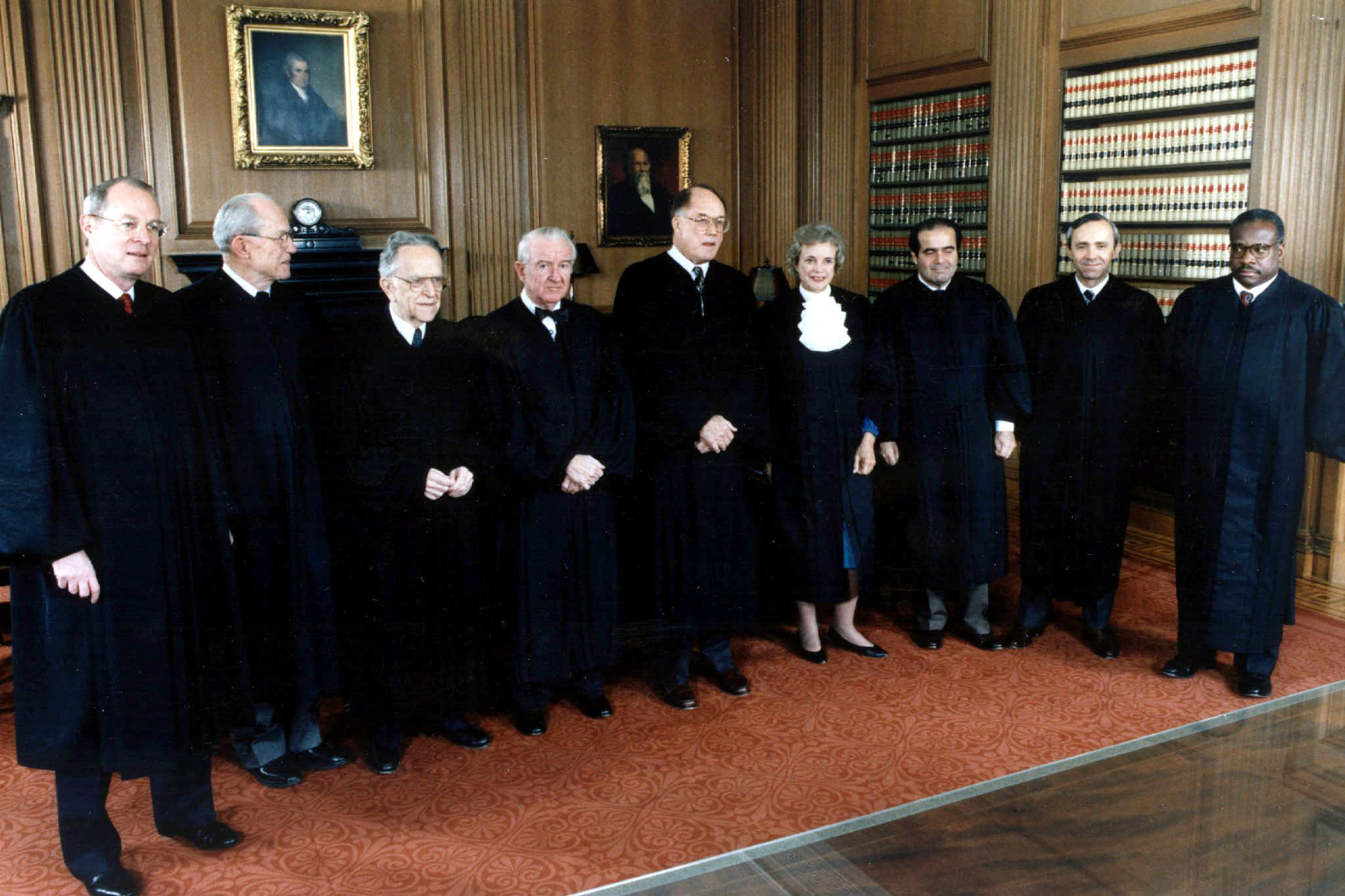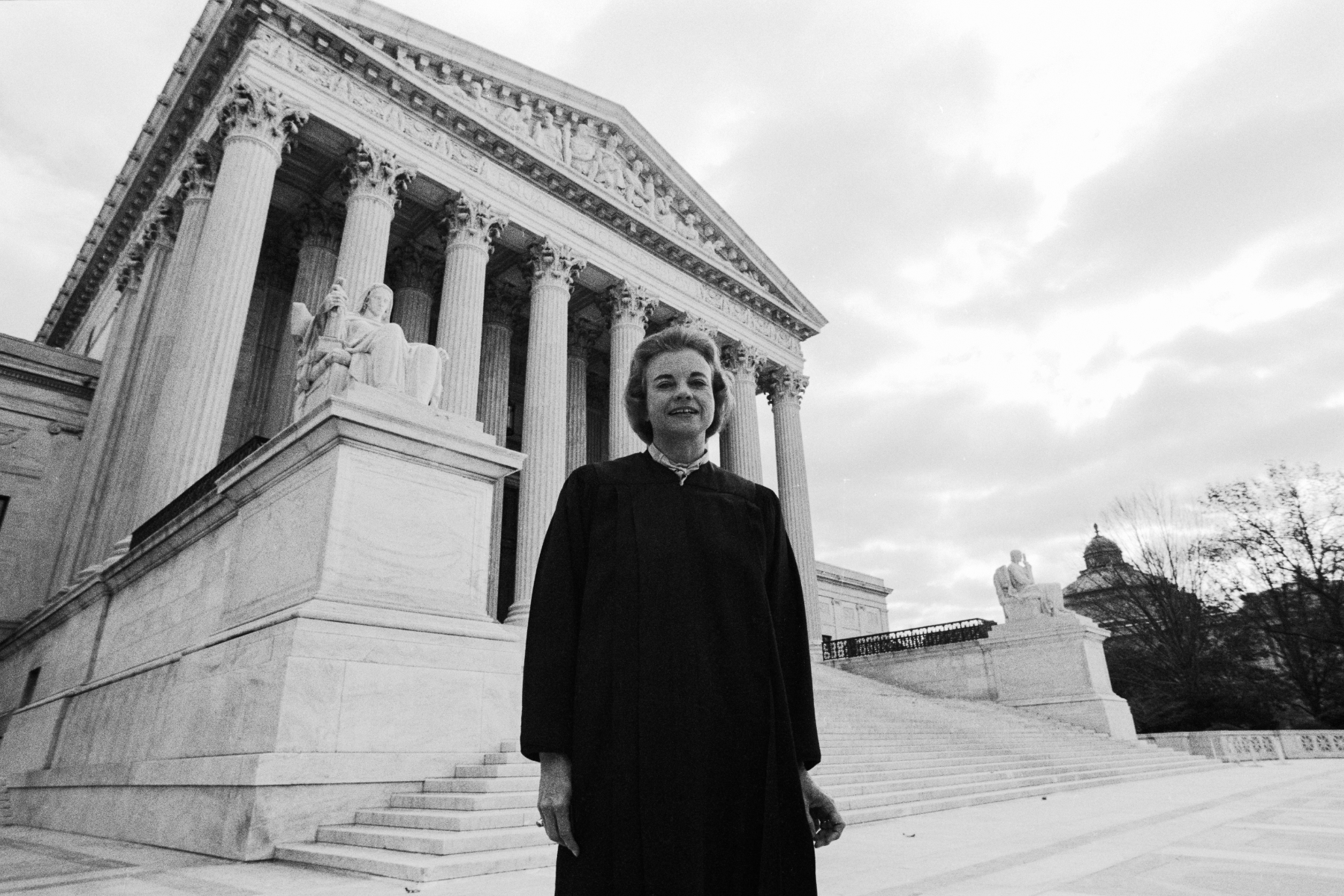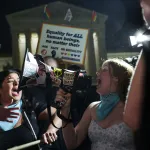At The 19th, we’re committed to publishing journalism that you can trust throughout the critical moments that shape our democracy and our lives. Show your support during our Fall Member Drive, and your donation will be matched.Double your gift today.
Sandra Day O’Connor, the first woman to serve as a U.S. Supreme Court justice, has died at 93 years old.
The Supreme Court on Friday stated that O’Connor died “of complications related to advanced dementia, probably Alzheimer’s, and a respiratory illness.”
O’Connor was nominated and confirmed in 1981 to the Supreme Court, where she sat for 24 years. On the nation’s highest court, O’Connor became a critical swing vote on issues including abortion, racial discrimination and affirmative action.
She was one of three justices who wrote the majority opinion in Planned Parenthood v. Casey in 1992. In that case, Planned Parenthood sued the state of Pennsylvania over new restrictions on abortions, mandating among other things a 24-hour waiting period and that a married woman tell her husband if she was getting an abortion.
The regulation on getting spousal notification was struck down, but others were upheld. Ultimately, the justices reaffirmed the decision in Roe v. Wade that established a federal right to abortion and added that states could not impose an “undue burden” on anyone seeking an abortion. The Roe decision had set the cutoff point for the legality of abortion at the beginning of the third trimester; the Casey decision changed it to fetal viability. That key abortion ruling was superseded last year when a more conservative court overturned the federal right to abortion.

In the 1980s and ’90s, O’Connor wrote key decisions for the court restricting the use of affirmative action in business and government contracting. In 2003, however, she wrote a court opinion upholding the need for race-conscious policies at colleges and universities, but added, “We expect that 25 years from now, the use of racial preferences will no longer be necessary to further the interest approved today.”
In June of this year, the Supreme Court voted 6-3 to end use of affirmative action in colleges and universities. Conservative justices on the court referenced O’Connor’s 25-year time limit as support for its ruling.
O’Connor also sided with the majority of the court when, in 2000, it decided to stop the ballot recount in Florida, sending George W. Bush to the White House.
She retired in 2006 to take care of her husband, who had Alzheimer’s. He died in 2009.
Years before her historic nomination, O’Connor was a rising star in Arizona politics. She served as assistant attorney general of Arizona for four years and in 1969 was appointed to fill a vacancy on the Arizona Senate. In 1972, she became the first woman in the country to hold the title of majority leader in a state legislature.
Two years later, O’Connor was elected to the Maricopa County Superior Court; she was elevated to the Arizona State Court of Appeals in 1979. When a vacancy on the U.S. Supreme Court opened up, President Ronald Reagan’s shortlist came down to O’Connor and Cornelia Groefsema Kennedy, another U.S. appellate court judge. Reagan had promised during his presidential campaign to appoint the first woman Supreme Court justice.
A number of things were probable factors in Reagan’s decision, including the fact that Kennedy was older than O’Connor and a Democrat, while Reagan was a Republican.
In the book, “Shortlisted: Women in the Shadows of the Supreme Court,” researchers Renee Knake Jefferson and Hannah Brenner Johnson wrote, “O’Connor fit the norms most comfortable for what one scholar calls ‘Benchmark Men,’ i.e., men ‘who remain the primary decision makers and prefer to appoint women who espouse values most like their own. That is, they should be White, able-bodied, heterosexual, middle class and politically right of center.’”
Only five other women have been on the Supreme Court. Ruth Bader Ginsburg was nominated in 1993; she served until her death in 2020. The other four are currently on the high court: Sonia Sotomayor, who joined the court in 2009; Elena Kagan, who joined the next year; Amy Coney Barrett, confirmed in 2020; and Ketanji Brown Jackson, confirmed last year as the first Black woman justice.






